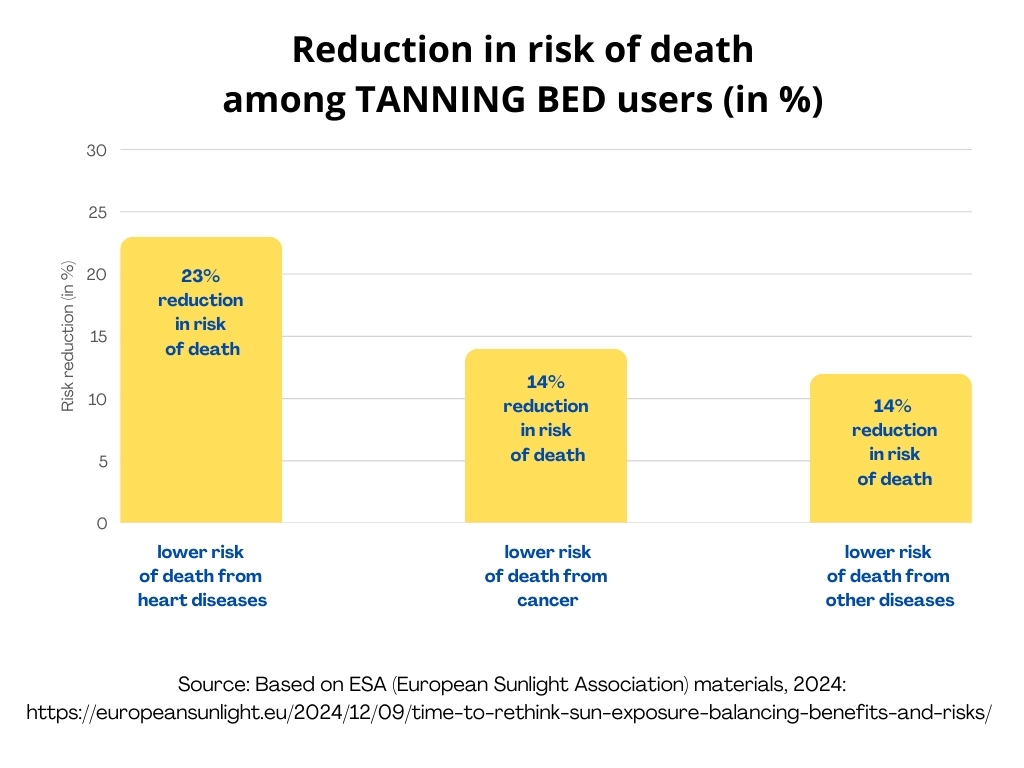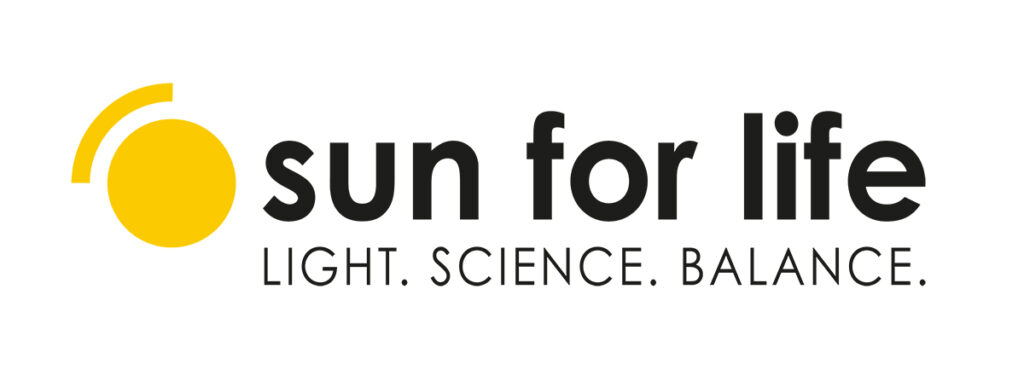More sun, longer life? UK study sheds new light on the impact of UV exposure on mortality
For years, we’ve been warned about excessive sun exposure and the use of tanning beds. Dermatologists and health organisations have emphasised the risk of skin cancer and premature ageing caused by UV radiation. But is this perspective entirely justified?
A 2024 study published in Health & Place sheds new light on the issue, suggesting that sun exposure may have health benefits, even influencing longevity.
More sun, fewer deaths? Insights from the UK Biobank study – nearly 400,000 participants analysed
analysed data from the UK Biobank – one of the world’s largest health information databases – revealed that people who used sunbeds more frequently and lived in areas with higher annual sunlight levels had significantly lower mortality rates, both overall and from cardiovascular diseases and cancers.
Surprisingly, the results were consistent regardless of the source of UV exposure – both natural sunlight and tanning beds were linked with longer life expectancy.
Key numbers – what can be gained?
Sunbed users had:
- a 23% lower risk of death from heart disease,
- a 14% lower risk of death from cancer,
- a 12% lower risk of death from other disease-related causes (not related to cancer or cardiovascular issues).
Similar benefits were seen among those living in sunnier regions of the UK, where average UV exposure was higher throughout the year. These individuals had a 12% lower overall risk of death and a 19% lower risk of death from cardiovascular diseases.
Additionally, researchers estimated that people living in less sunny places (like Glasgow) lost an average of 26 more days of life compared to those living in brighter areas (like Cornwall).

The sun is more than just Vitamin D
For a long time, it was believed that the key health benefit of sun exposure was linked to vitamin D, which is synthesised in the skin under UVB rays. Low levels of vitamin D have been associated with higher risks of cardiovascular disease and cancer.
However, new studies suggest that vitamin D might not be the only factor responsible for the health benefits of sun exposure.
What else could be at work?
- Nitric oxide (NO), released in the skin in response to UVA radiation, it dilates blood vessels and lowers blood pressure, potentially reducing the risk of stroke and heart attack.
- Reduction of inflammation – UVA exposure may suppress NLRP3 activity, a factor linked to chronic inflammation, which contributes to diabetes, atherosclerosis, and other chronic diseases.
This means the health benefits of sunlight exposure may go far beyond vitamin D.
So, should we stop fearing the sun?
This isn’t a call to ignore skin cancer risks or to encourage reckless tanning. The key is smart sun exposure – avoiding sunburn and keeping exposure within moderate, safe limits.
The study showed that individuals with higher UV exposure did not have a higher risk of death from melanoma. Those with higher vitamin D levels had better outcomes when diagnosed with this type of cancer.
These findings suggest that, in countries with limited sunlight, the potential health benefits of sun exposure may outweigh the risks.
Time to rethink official recommendations?
Current health guidelines focus largely on skin cancer prevention. But there’s a growing body of evidence indicating that overly strict avoidance of sunlight might actually shorten life expectancy.
Maybe instead of simply saying “avoid the sun,” it’s time to ask: how can we enjoy it safely?
The sun as a health ally
UV exposure may reduce the risk of death from cardiovascular disease and cancer.
Not only vitamin D, but also nitric oxide and other mechanisms, contribute to the benefits of sunlight.
The key is smart exposure – moderate sun without burns can bring real health advantages.
A new conversation is needed around public health guidelines on sun exposure, especially in low-sunlight regions.
Is it time to change how we think about sun exposure?
Source: Stevenson AC, Clemens T, Pairo-Castineira E, Webb DJ, Weller RB, Dibben C. Higher ultraviolet light exposure is associated with lower mortality: An analysis of data from the UK biobank cohort study. Health Place. 2024 Aug 1;89:103328. doi: 10.1016/j.healthplace.2024.103328. Epub ahead of print. PMID: 39094281. https://www.pure.ed.ac.uk/ws/portalfiles/portal/460358814/1-s2.0-S1353829224001564-main.pdf
